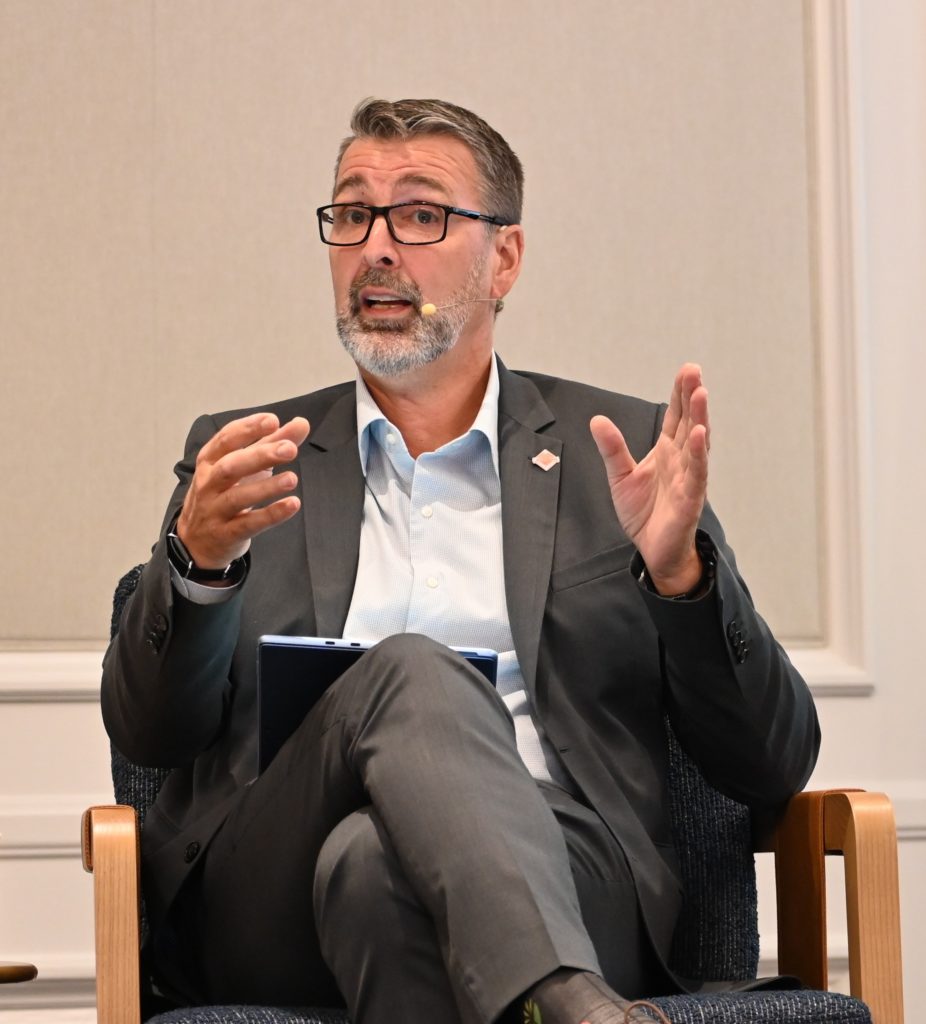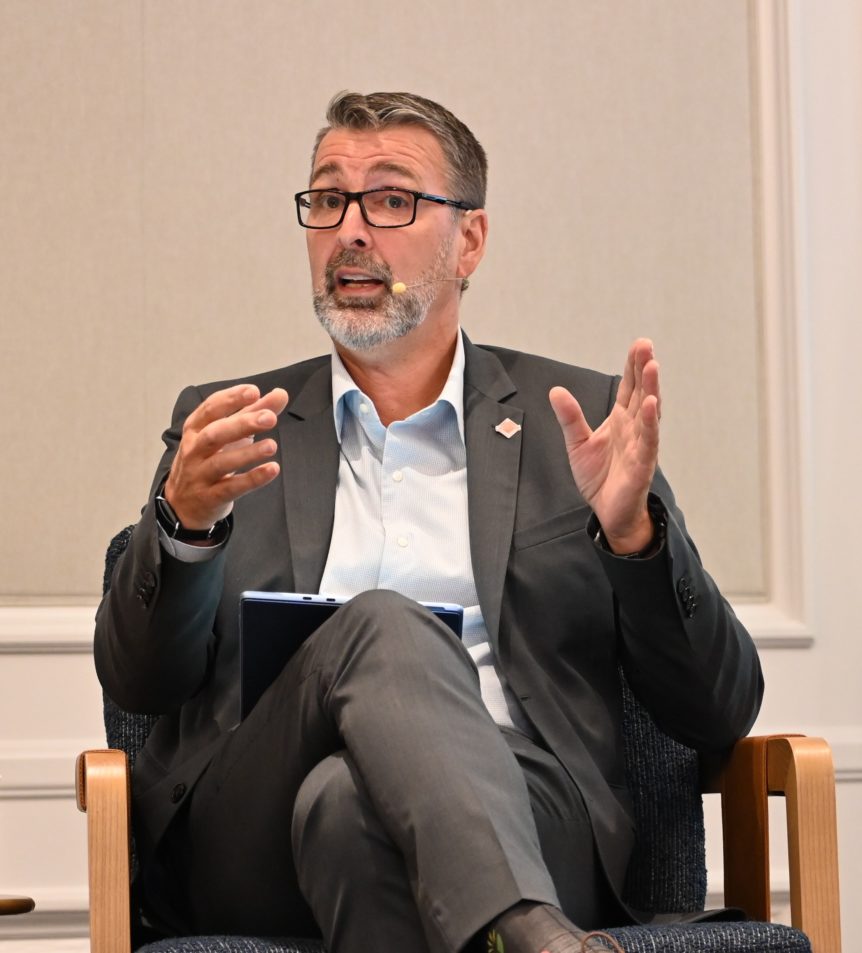By Frank Giles
In September, the Florida Fruit & Vegetable Association (FFVA) hosted its annual conference in Orlando. Specialty crop growers gathered for three days of engagement and education. One of the forums held during the conference was a panel discussion on the new Trump administration and trade. Participants included Lauren Reamy, Penn Avenue Partners; Carolyn Gleason, McDermott Will & Schulte; and Ron Lemaire, president of the Canadian Produce Marketing Association. All three participants are well connected with trade dealings in Washington, D.C.
Biggest Surprise
When asked about the biggest surprises coming out of the new Trump administration, Reamy noted the unity on Capitol Hill to get the One Big Beautiful Bill passed. She said that getting a reconciliation package passed is a very difficult process, even with the Republicans controlling all three houses.

“I was very surprised how the Republicans worked to get the One Big Beautiful Bill across the finish line and on President Trump’s desk July 4th,” she said.
Trump on Trade
When it comes to the direction of trade negotiations, Gleason said President Trump is very involved and driving the agenda and timeline.
“He is deeply vested in the trade agenda and uncommonly active for a president in this area. This is informed by his long-held views about unfair trade imbalance and his considerable negotiating skill sets,” she said. “He is not just giving thumbs up and thumbs down on these trade agreements. He is involving himself in these negotiations and interacting with his foreign counterparts to improve the substance of the trade deals.”
Canadian Relations
The use of tariffs has been a cornerstone of Trump’s agenda to move countries to the negotiating table. Tariffs and Trump’s talk of making Canada the 51st state rattled the important trading partnership between the two countries. Lemaire addressed those issues and said food security is national security, so the American and Canadian relationship is critical.
“We have a much shorter growing season, so we as a country rely heavily on the United States, and most specifically Florida, because of proximity and the climatic nature of the state and product diversity that you have here,” Lemaire said. “Without you, we have a massive challenge.
“As a North American (trading block), we need to drive the point more effectively to our leaders and frame a model on the importance of these relationships. And more importantly, how we are investing in and solidifying the farmer in both our economies and driving that to the consumer.”
The United States has generally enjoyed a trade surplus with Canada of about $1 billion annually. Florida also has had a trade surplus with Canada, depending on the commodity.
“The tariff challenge and the 51st state talk has thrown some curves at the market,” Lemaire said. “This is something we must reinvest in to build that relationship back up.”
The 51st state comments by Trump are an example of how galvanizing political rhetoric can be. Lemaire said the effect in Canada was almost overnight. Canada had imposed 25% tariffs mostly targeted at red states, including Florida, on crops like beans, tomatoes, citrus, and other tree fruits and nuts.
“The tariff was not the difference on market access from the view of our association and what is happening in Canada,” he said. “The comments on the 51st state and some of the other tweets that were being delivered by the administration probably was the best unification strategy our country ever saw.
“Within 24 to 48 hours, we saw a total nationalistic shift and unity in the country and that elbows up concept. If you look at the numbers, in the first quarter of this year, there were well over 77% of Canadians saying they would avoid or not purchase U.S. fruit and vegetables. That is concerning. They always say it is harder to regain a market than build a new one. So, the challenge now is … how we regain that relationship.”
The Canadian position is softening somewhat since the 51st state controversy has mostly passed over, but Lemaire said work remains to be done to repair the important trading partnership between the two countries.










